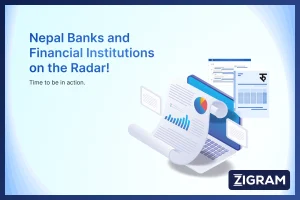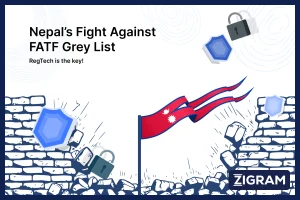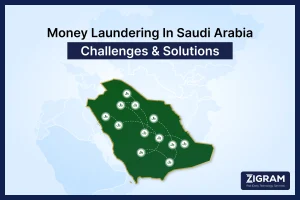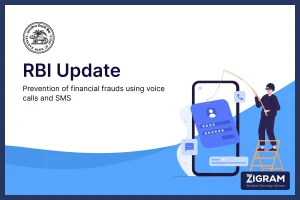As 2024 unfolds, significant regulations and regulatory reforms sweep across the globe, from the United States to Europe, Australia, India, and the Middle East. These reforms aim to fortify anti-money laundering (AML) frameworks, regulate cryptocurrencies, enforce sanctions, redefine Politically Exposed Persons (PEPs), and ensure compliance. Here’s a comprehensive overview of key developments in each region and their implications for businesses and financial institutions worldwide.

United States
The Corporate Transparency Act
The Corporate Transparency Act (CTA) effective January 1, 2024, mandates firms to report beneficial owners to curb illicit financial activities, imposing penalties for non-compliance. The CTA, part of the National Defense Authorization Act for Fiscal Year 2021, enhances transparency by requiring covered entities to disclose ownership information to FinCEN. Key provisions include reporting requirements, exemptions, FinCEN's database, and compliance measures, aiming to combat money laundering and terrorist financing. This legislation establishes a centralized database to aid law enforcement, facilitating collaboration and tackling emerging threats effectively.
The Global Magnitsky Human Rights Accountability Act
The Global Magnitsky Human Rights Accountability Act, issued by the U.S. Department of the Treasury's Office of Foreign Assets Control (OFAC) on March 12, 2024, implement the Global Magnitsky Act to target individuals and entities involved in serious human rights abuses and corruption worldwide. Key provisions include scope and application to U.S. and foreign persons, designation criteria for sanctions, asset blocking measures, listing procedures, and penalties for violations. These regulations underscore the U.S. commitment to human rights and combatting corruption, with implications for governments, businesses, financial institutions, and individuals globally, emphasizing the importance of due diligence in international transactions.
Europe
- On January 17, 2024, the European Union’s Council and Parliament achieved a significant milestone with a political agreement on AMLD 6, a new Regulation and a sixth Directive targeting the combat against money laundering and terrorism financing. This follows a previous agreement on establishing an EU-wide Authority for Anti-Money Laundering. The regulations cover a wide range of entities and transactions, aiming to enhance transparency and enforce stricter measures to prevent illicit activities. Key provisions include extended scope for obliged entities, enhanced due diligence obligations, controls on cash payments, and reinforced rules on beneficial ownership registers. Additionally, the agreement outlines measures for supervision, whistleblowing, and coordination between authorities, reflecting a comprehensive approach to tackling financial crime within the EU. AMLA will directly supervise high-risk financial entities across the EU, aiming to ensure uniform application of AML standards.
- Market in Crypto-Assets Regulation (MiCA Regulation) ESMA recently published documents related to the Market in Crypto-Assets Regulation (MiCA Regulation) under Regulation (EU) 2023/1114. This regulation aims to harmonize the European legal framework for crypto-assets. It will be fully applicable from December 30, 2024, with some requirements for specific tokens starting from June 30, 2024. ESMA has been developing technical standards through consultation packages. The final drafts for Consultation Package 1, focusing on Crypto-Asset Service Providers (CASPs), were published on March 25, 2024, including requirements for disclosure, application for authorization, and complaint handling procedures. Additionally, ESMA issued guidelines related to “reverse solicitation” and the qualification of crypto-assets as financial instruments, which were put out for consultation.
- EU 13th Sanctions Package Against Russia: On 23 February 2024, European Union (EU) has unveiled its 13th sanctions package against Russia to counter its aggressive actions. These measures aim to pressure Russia and disrupt its destabilizing activities. Key highlights of the EU’s 13th sanctions package against Russia include its broad scope, encompassing over 2000 designations with 194 new ones. The sanctions specifically target Russia’s military sector, with over 140 entities aimed to disrupt its operations. Additionally, sanctions extend to entities supporting Russia’s war efforts, including those from DPRK and Belarus. Export limits imposed on 27 companies restrict Russia’s access to advanced technologies, further weakening its military capabilities. The EU remains committed to rigorously enforcing these sanctions, aiming to prevent circumvention and ensure accountability. These measures are expected to heighten challenges to Russia’s economic stability and geopolitical ambitions.
United Kingdom
Changes to Regulations for Politically Exposed Persons (PEPs):
Effective January 11, 2024, an amendment to money laundering regulations redefines the treatment of politically exposed persons (PEPs). Notably, UK PEPs are now considered lower risk compared to overseas PEPs, effective from January 10, 2024. While they still require enhanced due diligence (EDD), this reclassification suggests a decreased risk level for UK PEPs, unless other factors indicate otherwise. Firms subject to these regulations should review and adjust their policies and procedures accordingly, emphasizing that domestic PEPs generally warrant a lower standard of EDD, unless specific circumstances dictate otherwise. This amendment represents a nuanced approach to risk assessment, acknowledging potential differences in risk profiles between domestic and overseas PEPs. By providing clearer guidance on PEP treatment, these regulatory changes aim to streamline compliance efforts while maintaining effective risk management practices.
Germany
- Germany's Cannabis Act, passed in February 2024, legalizes recreational cannabis, aiming to curb black-market activities and drug-related crime. However, concerns about increased risks of money laundering (ML) and terrorist financing (TF) have emerged. Legalization could open avenues for ML, such as illegal imports and illicit market linkages, while criminal groups may exploit legal cannabis businesses for laundering proceeds. This poses challenges for the financial sector, including cross-border banking constraints. Robust anti-money laundering (AML) measures are essential, including thorough risk assessments and tailored compliance processes. Collaboration among stakeholders is crucial to mitigate ML risks and ensure sustainable growth while safeguarding the financial system.
- Germany's Supply Chain Due Diligence Act (LkSG), entering its second stage of implementation on January 1, 2024, mandates formal screening and reporting on environmental, social, and governance (ESG) issues within supply chains. The Act covers enterprise operations, partners, and indirect suppliers, now including companies with 1,000 employees. Non-compliance risks fines of up to 2% of annual turnover or EUR 8 million, with potential exclusion from public contracts. Key highlights of the LkSG include requirements for rigorous risk analysis, establishment of complaints procedures with whistleblower protection, meticulous reporting to the Federal Office for Economic Affairs and Export Control (BAFA), and adoption of comprehensive human rights policies. Read more here.
India
Revised Definition of Politically Exposed Persons (PEPs) by the Reserve Bank of India:
The Reserve Bank of India (RBI) has updated its Know Your Customer (KYC) norms, specifically redefining the definition of Politically Exposed Persons (PEPs) This adjustment aims to ease banking transactions, like loan applications, for individuals classified as PEPs. Previously, the lack of clarity in the definition posed challenges for various stakeholders, hindering access to banking services such as loans or account openings. The revised KYC guidelines now specify PEPs as individuals who hold or have held significant public roles in foreign countries, encompassing heads of states, senior politicians, government, judicial, or military officials, senior executives of state-owned companies, and key political party members. By offering a clearer definition, the RBI aims to tackle accessibility issues for PEPs while ensuring regulatory compliance. This change is poised to simplify banking procedures for PEPs, fostering financial inclusivity and accessibility.
Kenya
Banking (Penalties) Regulations, 2024 Kenya’s banking sector is under heightened regulatory scrutiny with the proposed Banking (Penalties) Regulations, 2024, introduced by the Central Bank of Kenya (CBK) under the Banking Act. These regulations aim to boost compliance and deter violations by establishing clear frameworks for assessing breaches and imposing penalties. They cover a wide range of offenses, including failure to maintain minimum liquid assets, non-compliance with capital adequacy measures, and unauthorized share capital transfers, along with breaches related to corporate governance and risk management. Compared to existing regulations, the proposed penalties are substantially higher, with fines reaching up to KES20,000,000 for institutions and KES1,000,000 for individuals. The process ensures fairness by issuing written notifications, allowing responses, and providing avenues for appeal. These stricter measures coincide with Kenya’s recent inclusion in the FATF greylist, highlighting the CBK’s commitment to combating financial crimes and maintaining stability. Public feedback on the draft regulations is encouraged until March 18, 2024, demonstrating a transparent and inclusive approach to regulatory development in the banking sector.
Australia
Tranche 2 AML Reforms:
Australia is gearing up for Tranche 2 reforms in 2024/2025to enhance its AML/CFT framework and avoid the FATF grey list. These reforms target various sectors like legal, real estate, gambling, auditing, and precious metal trading. Key recommendations include gatekeeper regulation, streamlined rules, technology adoption, risk-based approach, beneficial ownership transparency, penalty increase, and AUSTRAC resource bolstering. The Tranche 2 AML reforms focus on enhancing AML frameworks through measures like robust Customer Due Diligence (CDD), transparency in beneficial ownership, and a risk-based compliance approach. Additionally, they stress strong regulatory oversight, technology adoption, and innovation to combat financial crime effectively. However, smaller financial institutions may face challenges in complying with these reforms, necessitating significant investments and ongoing adaptation to address evolving money laundering threats.
United Arab Emirates
Recent Legislative Changes on Ultimate Beneficial Ownership (UBO) Regulations:
The United Arab Emirates (UAE) has recently implemented significant legislative changes concerning Ultimate Beneficial Ownership (UBO) regulations and associated administrative penalties. These changes aim to enhance transparency and combat financial crimes effectively. Here's an overview of the key developments: New Resolution (Cabinet Resolution No. 109 of 2023): Effective from November 16, 2023, this resolution supersedes Cabinet Resolution No. 58 of 2020. It applies to all corporate entities in the UAE mainland and non-financial free zones. The resolution addresses challenges in identifying UBOs, especially in entities with complex ownership structures. Amendments and updates have been introduced to provide clarity and streamline beneficial ownership procedures. The accompanying Decision (Cabinet Decision No. 132 of 2023, Issued on December 15, 2023 focuses on penalties for violations, aligning with updated regulations and targeting complex ownership structures. These changes underscore the UAE's commitment to transparency and integrity in corporate governance, reflecting a global trend towards stricter AML controls and enhanced transparency. Businesses worldwide must stay informed and compliant with evolving regulatory landscapes to combat traditional and emerging forms of financial crime effectively.
As we conclude our exploration of the major regulations shaping the financial crime landscape in 2024, it becomes evident that governments and regulatory bodies worldwide are taking decisive steps to strengthen anti-money laundering (AML) frameworks, regulate cryptocurrencies, enforce sanctions, redefine the treatment of Politically Exposed Persons (PEPs), and ensure compliance. From the Corporate Transparency Act in the United States to the AMLD 6 Directive in Europe, and from Kenya's Banking (Penalties) Regulations to Australia's Tranche 2 AML Reforms, these measures underscore a concerted effort to combat financial crimes and promote transparency. Moreover, the recent legislative changes concerning Ultimate Beneficial Ownership (UBO) regulations in the United Arab Emirates highlight the global trend towards stricter AML controls and enhanced transparency in corporate governance. As businesses navigate these evolving regulatory landscapes, it is crucial to stay informed and compliant to effectively combat both traditional and emerging forms of financial crime. By embracing these regulatory changes and adopting robust compliance measures, financial institutions and businesses can contribute to a more transparent and resilient global financial system. As we move forward, collaboration among stakeholders and ongoing vigilance will remain essential in addressing the dynamic challenges posed by financial crimes in the digital age.
- #Regulations
- #PEP
- #AML
- #CFT
- #Sanctions
- #Crypto
- #Crypto
- #Compliance






